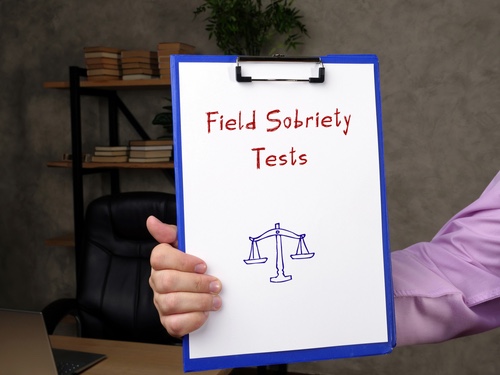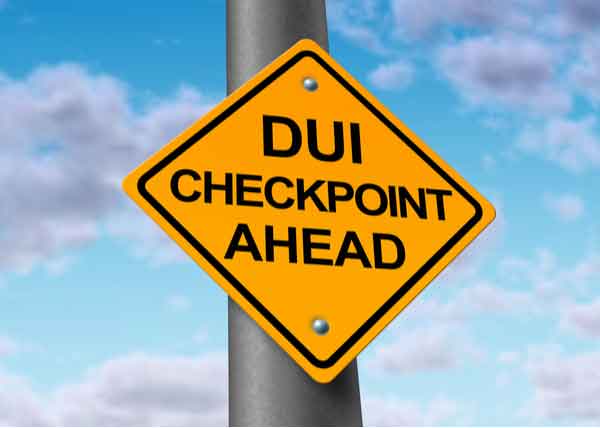Field sobriety tests are physical and mental exercises that law enforcement officers use to determine if a driver is under the influence of alcohol or drugs. Standardized tests, such as the SFSTs endorsed by the National Highway Traffic Safety Administration, are performed in the same manner every time to ensure accuracy and admissibility in court.
If you’re pulled over and the officer suspects you’ve been drinking, they may ask you to step out of your car and perform some field sobriety tests. While it may be tempting to try and prove your sobriety by nailing these tests, that’s not always the best idea.
Get a free case evaluation from a DUI lawyer in Indianapolis from the Rathburn Law Firm to help you in your case.
In this blog, we’ll go over some tips on how to perform well in field sobriety tests so that you don’t end up getting arrested for DUI.
How Do Field Sobriety Tests Work?
Field sobriety tests, which are standardized tests, are divided into three categories: the walk-and-turn test, the one-leg stand test, and the horizontal gaze nystagmus test. These are part of the standardized field sobriety test (SFST) endorsed by the National Highway Traffic Safety Administration, ensuring they are performed in the same manner every time to ensure accuracy and admissibility in court. A police officer administers these tests to determine if a person is impaired.
Here are the details:
Walk-And-Turn Test
The walk-and-turn test is one of the components of the standardized tests used in field sobriety assessments. The police officer will ask you to walk in a straight line, heel-to-toe, for nine steps. You will then be asked to turn around and walk back. The officer will be looking for several clues that indicate intoxication, such as if you can’t keep your balance, if you start too soon, or if you stop walking before the nine steps are completed. If you can’t perform this test, it’s likely because you’re under the influence of alcohol.
One-Leg Stand Test
The one-leg stand test is one of the components of the standardized tests used in field sobriety assessments. The police officer will ask you to stand on one leg with the other leg raised six inches off the ground. You will be asked to count out loud by thousands (one thousand-one, one thousand-two, etc.) until told to stop.
The officer will be looking for clues that you are intoxicated, such as if you sway while standing, if you put your foot down, or if you can’t stand on one leg without support. This test is also difficult to perform if you’ve been drinking.
Horizontal Gaze Nystagmus Test
The horizontal gaze nystagmus test is one of the components of the standardized tests used in field sobriety assessments. The police officer will ask you to follow a moving object with your eyes. If your eyes jerk when following the object, it’s likely because you’re intoxicated. The officer will be looking for clues that you are intoxicated, such as if your eyes cannot follow the object smoothly, if your eyes jerk when tracking the object, or if your eyes move before the object does.
Procedures for Conducting Sobriety Tests
Officers in Indianapolis follow specific procedures when administering the standardized tests to ensure accuracy and fairness:
Initial Observation:
Officers first observe the driver’s behavior, appearance, and any indications of impairment, such as slurred speech or the smell of alcohol.
Explanation of Tests:
Before conducting standardized tests, officers explain each test clearly and demonstrate the tasks to be performed.
Performance Evaluation:
During the standardized tests, officers carefully observe the driver’s performance, noting any deviations from the standardized procedures that may indicate impairment.
Interpretation of Results:
Based on their observations, officers assess whether the driver passes or fails each test. Failing a test does not conclusively prove impairment but provides probable cause for further testing or arrest.
Legal Implications and Rights
Drivers in Indianapolis have rights during sobriety testing, including the right to refuse these tests. However, Indiana’s implied consent law means that refusal may lead to administrative penalties, such as license suspension, regardless of guilt.
How To Pass A Field Sobriety Test?
Here are some tips from Indianapolis criminal defense lawyers on how to ace these standardized tests:
If you have been pulled over for suspected drunk driving, you will likely be asked to perform a series of standardized field sobriety tests (SFSTs). Law enforcement officers use these tests to determine if a person is impaired. SFSTs are designed to evaluate your level of intoxication and determine whether you are fit to drive. While they may seem daunting, there are a few things you can do to prepare yourself and increase your chances of passing.
Before you start the test, take a deep breath and relax. This will help you to focus and keep your cool during the test. Pay attention to the instructions given by the officer and be sure to follow them closely. If you do not understand something, do not hesitate to ask for clarification.
Listen to the officer’s instructions carefully. The officer will likely give you specific instructions on how to complete each test. You must listen carefully and follow those instructions to the letter. If you don’t, the officer may interpret your actions as evidence of intoxication.
Don’t try to “cheat” the tests. The officer is looking for specific indicators of intoxication, so don’t try to fake your way through the tests. For example, if you are asked to walk in a straight line, don’t start walking before the officer tells you to or veer off course.
Keep your balance. One of the main indicators of intoxication is loss of motor skills and coordination. So, it’s important to maintain your balance while performing the field sobriety tests.
Don’t get angry or confrontational. It’s important to remain calm and cooperative during the entire process. Getting angry or confrontational with the officer will only make things worse.
Don’t admit to anything. You should never admit to drinking alcohol, no matter how much the officer pressures you. Anything you say can and will be used against you in court.
If you are arrested for DUI, the best thing you can do is to contact an experienced DUI lawyer in Indianapolis. A qualified lawyer can help you navigate the legal process and ensure that your rights are protected.
If you are asked to walk in a straight line, take small steps and heel-to-toe your way down the line. If you are asked to stand on one leg, raise your leg about six inches off the ground and hold it there for 30 seconds.
What To Do If You Fail A Field Sobriety Test?
If you have failed a field sobriety test or refused a chemical test, there are a few things that you can do to prove your sobriety. The first thing that you should do is request a blood or urine test. This will help to show that you are not under the influence of alcohol or drugs. You should also try to obtain video footage of the field sobriety test, as this can be used as evidence in your defense.
If you have any witnesses who saw you taking the test, be sure to get their contact information so they can testify on your behalf. Finally, it is important to remain calm and cooperative with the police officers, as acting belligerent will only make your situation worse.
Hire An Indianapolis Criminal Defense Lawyer For Solid Legal Representation
If you are ever asked to take a field sobriety test, it is important to remember that these tests are designed to assess whether or not you are impaired. Under implied consent laws, individuals are deemed to consent to chemical tests when they drive a motor vehicle, and refusing these tests may lead to consequences such as driver’s license suspension, fines, or criminal charges. Several factors can influence your performance on these tests, including your level of intoxication, your level of fatigue, and even the weather conditions.
If you’re ever caught in DUI trouble, guilty or not, it is best to consult with an experienced Indianapolis criminal defense lawyer from the Rathburn Law Firm on how to best prepare your legal defense against the charges and avoid a conviction.
Wait no further, reach out to us now!











